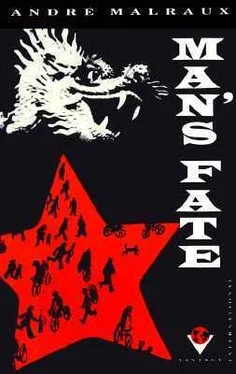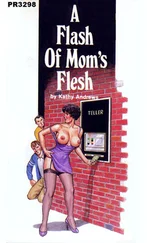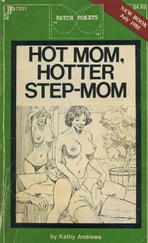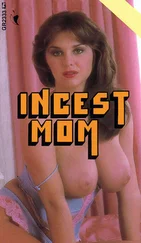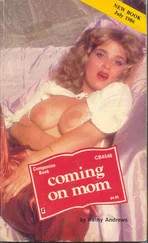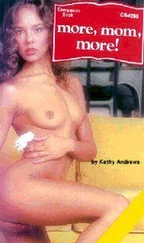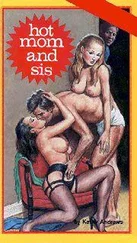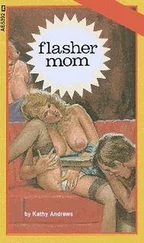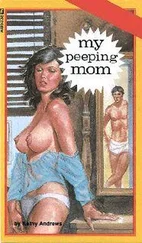“You have a letter for me. Give it to me.”
The porter, astonished but maintaining his seriousness, handed him the letter.
“Do you know, dear, that Persian women beat their husbands with tbeir nailed slippers when they are' ang;ry? They are irresponsible. And then, of course, they afterwards return to everyday life, the life in which to weep with a man does not co'^mit you, but in which to go to bed with him makes you a slave, the life in which one ‘has ’ women. I am not a woman to be had, a stupid body in which you may find your pleasure by telling lies as to children and invalids. You know a good many things, dear, but you will probably die without its ever having occurred to you that a woman is also a human being. I have always met (perhaps I shall never meet any who are different, but so much the worse-you can't know how thoroughly I mean ‘so much the worseP) men who have credited me with a certain amount of charm, who have gone to touching lengths to set off my follies, but who have never failed to go straight to their men-friends whenever it was a question of something really human (except of course to be consoled). I must have my whims, not only to please you, but even to make you listen when I speak; I want you to know what my charming folly is worth: it resembles your affection. If any unhappiness could have resulted from the hold you wanted to have on me, you would not even have noticed it.
“I have met enough men to know how to regard a passing affair: nothing is without importtmce to a the moment it involves his pride, and pleasure allows him to gratify it most quickly and most often. I refuse to be regarded as a body, just as you refuse to be regarded as a check-book. You act with me as the prostitutes do with you: ‘Talk, but pay., I am also that body which you want me to be wholly; I know it. It is not always easy for me to protect myself from the idea people have of me. Your presence brings me close to my body with disgust, as springtime brings me close to it with joy. Speaking of spring, have a good time with the birds. And, by the way, the next time do leave the electric switches alone.
“V.”
He told himself that he had built roads, transformed a country, torn from their straw-huts the thousands of peasants now housed in the cabins of corrugated iron- sheets around his factories-like a feudal lord, like a delegate of empire; in its cage, the blackbird seemed to be making fun of him. Ferral’s energy, his lucidity, the audacity which had transformed Indo-China and whose crushing weight he had just felt upon reading the letter from America, led to nothing but this ridiculous bird- ridiculous as the universe-which was undeniably making fun of him. “So much importance given to a woman.” The woman had nothing to do with it. She was nothing but a bandage torn away from his eyes: he had thrown himself with all his might against the boundaries of his will. His thwarted sexual excitement fed his anger, threw him into the choking state of hypnosis in which ridicule calls for blood. One can get quick revenge only on bodies. Clappique had told a gruesome story about an Afghan chief whose wife, after having been violated by a neighboring chief, had returned with a letter, saying: “I am returning your woman, she is not so good as she is said to be”; and who, having caught the offender, had tied him in front of the naked woman to tear out his eyes, saying: “You have seen her and despised her, but you can swear that you will never see her again.” He imagined himself in Valerie’s room, with her tied to the bed, screaming till her exhausted cries became choking sobs, so close to cries of pleasure, bound with cords, writhing under the possession of suffering, since it was not under that of sex. The porter was waiting. “I must remain unmoved, like this idiot-l’d like to box his ears, just the same.” The idiot did not betray the slightest smile. He was saving it up for later on. Ferral said: “I’ll return shortly,” did not pay for his cocktail, left his hat and went out.
“To the biggest bird-dealer,” he said to the chauffeur.
It was near by. But the shop was closed.
“In Chinese city,” said the chauffeur, “street of bird- dealers.”
“Go ahead.”
As the car drove along there ran through Ferral’s mind the confession, which he had read in some medical book, of a woman seized with an uncontrollable desire to be flagellated, making an assignation by letter with an unknown man and discovering with terror that she wanted to run away at the very moment when she was lying on the hotel-bed and the man armed with the whip was completely paralyzing her arms under her lifted skirt. The face was invisible, but it was Valerie’s. Stop at the first Chinese brothel? No: no flesh would give him relief from the outraged sexual pride which tormented him.
The car was forced to stop before the barbed-wires. Ahead, the Chinese city, very black, unsafe. So much the worse. Ferral left the car, slipped his revolver into his coat-pocket, hoping for some assault: one kills what one can.
The street of the pet-shops was asleep; the “boy” quietly knocked at the first shutter, crying “Buyer”: the shopkeepers were afraid of the soldiers. Five minutes later someone opened. In the magnificent russet halflight, around a lantern, a few smothered leaps of cats or monkeys and beatings of wings announced the awakening of the animals. In shadows beyond the radius of the light, were long splotches of dul red: macaws chained to perches.
“How much for all those birds?”
“Just the birds? Eight hundred dollars.”
He was a small dealer, and he had no rare birds. Ferral pulled out his check-book, hesitated: the dealer would want cash. The “boy” understood. “He is Monsieur Ferral,” he said; “his car is over there.” The dealer went out, saw the headlights of the car, scratched by the barbed wires.
“That’s all right.”
This confidence, a proof of his authority, exasperated Ferral; his power, obvious to the point that his name was known to this shopkeeper, was absurd since he could not use it. Pride, however, helped by the activity in which he was engaged and by the cold night-air, came to his rescue: sadistic anger and imaginings were breaking up into disgust, even though he knew he had not done with them.
“I also have a kangaroo,” said the dealer.
Ferral shrugged his shoulders. But already a youngster, who had also been awakened, was approaching with the kangaroo in his arms. It was a small, furry creature, and it looked at Ferral with the frightened eyes of a deer.
“Fine.”
Another check.
Ferral returned slowly to the car. It was necessary above all that, if Valerie told the story of the cages- she would not fail to-he would only have to tell the end in order to escape ridicule. The dealer, the youngster and the “boy” were bringing the small cages, arranging them in the car, and returning to fetch more; finally, the last ones, the kangaroo and the parrots, brought in large round cages. Beyond the Chinese city, a few shots. Very good: the more they fought the better it would be. The car started off again, before the bewildered eyes of the post.
At the Astor Ferral sent for the manager.
“Will you please come upstairs with me to Madame Serge’s room. She is away and I want to give her a surprise.”
The manager concealed his astonishment, and even more his disapproval: the Astor was dependent on the Consortium. The mere presence of a white man to whom he could talk detached Ferral from his universe of humiliation, helped him to return among “the others”; the Chinese dealer and the night had left him in his obsession; he was not entirely freed from it yet, but at least it no longer dominated him wholly.
Читать дальше
